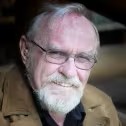
Frederick Kirschenmann
To watch Fred's Life Tribute Video: https://www.tributeslides.com/tributes/show/Z6TLS2C67YXB5G4H Frederick L. Kirschenmann, theologian, farmer and professor, passed away September 13, 2025 in Ames Iowa at the age of 90. He is widely recognized as the father of American organic agriculture. He has been called a giant, a legend, a catalyst, a Renaissance man. And he was. Fred was born on a North Dakota farm in February 1935 to a Russian German couple, Ted and Pauline Kirschenmann. The house had no running water and they farmed with draft horses on land at dire risk from both the Dust Bowl and the Depression. The Kirschenmanns had three books in the household, a Bible, a Concordance to the Bible and a hymnbook. Fred's first language was a Russian-German dialect, common among the immigrants that moved to that part of North Dakota. Recognizing that Fred was unusually bright, his parents boarded the school teacher who taught at the one room school a few miles away. Since Fred's older sister was attending school, the Kirschenmanns sent Fred to school with her a year early. He rapidly gained enough English to excel in school and graduated as the valedictorian of his M...[more]View Full Online Obituary and Tributes
na North Dakota high school. Fred started farming at a young age. During harvest he drove a tractor for 12 hours a day at the age of 7. He was so little that they tied him to the tractor seat. At age 12, his father had him rebuild the family tractor, an astonishing act of trust since the tractor was an essential part of the family assets. He went to Yankton College in South Dakota. After he graduated, he went to Hartford Seminary and then to University of Chicago where he earned a Ph.D. in philosophy and historical theology in three and a half years. He returned to Yankton College as a professor teaching religion and philosophy. He became an ordained United Church of Christ (UCC) minister after he graduated from Hartford Seminary. The day he died, the North Dakota UCC held its annual meeting and recognized Fred for the 65th anniversary of his ordination. He went on to several positions in higher education. These included serving as the first chair of the department of Religion at Yankton College and then academic dean of Curry College in Milton, MA (a suburb of Boston). Prior to Curry College, he had a transformative encounter with a graduate student named David Vetter while Fred was director of the Consortium for Higher Education Religion Studies (CHERS) in Dayton Ohio. Fred was instrumental in creating a dual career program modeled after the worker priests of France. David wrote an essay as part of his application to the CHERS program that said he wanted a ministry, not to people, but to the soil. This electrified Fred since one question had animated both he and his Dad following the Dust Bowl: how to protect the soil? While at Curry, Fred's father had a heart attack and decided to sell the farm. Fred offered to come back to North Dakota and take on the farm if, following his insights from David Vetter, he could manage it organically. His father agreed. In 1976, Fred and his family returned to the North Dakota farm. The initial conversion to organic was wildly successful since the residual fertility from the chemicals remained in the soil but subsequent years proved difficult as Fred worked out a crop rotation, integrated composted manure from his cattle and developed other methods of both resisting pests and increasing fertility. It took about 5 years for Fred to develop a working system that was as productive as the conventional system that preceded it. Fred built in a great deal of resilience that was not available during the chemical years of farming. This meant that his farm was able to be far more productive than his neighbor's farms during droughts or other disturbances. The farm had over 1,000 acres of native, never-plowed prairie. Fred ultimately managed the 3500 farm acres as an organic and biodynamic system by re-imagining the operation modeled on that prairie using ecological farming principles. He relied on only one external input, diesel, to run the equipment. His approach to farming--rooted in rebuilding soil health and community--was featured in Miranda Smith's documentary My Father's Garden (1995), which followed Fred through the seasons and contrasted organic stewardship with conventional agribusiness. Fred was not the only organic farmer in North Dakota. In 1979, a group of farmers created the North Dakota Natural Farmers Association. There were 45 members that first year. Fred was president. NDNFA later became the Northern Plains Sustainable Agriculture Society (NPSAS). Fred was a co-founder of Farm Verified Organic (FVO), which was one of the first organic certification programs in the US. Both the law and the science of sustainable agriculture were evolving. In 1988, Fred wrote the first publication of NPSAS entitled, Switching to a Sustainable System. This initial writing launched Fred as one of the most important voices in organic agriculture. That same year he testified before Congress on sustainable agriculture. NPSAS began a partnership with the Carrington Research Center under the leadership of Dr. John Gardner, a crop and soil scientist who had a profound respect for the knowledge and experience of organic farmers. John and Fred, along with the other intrepid farmers in NPSAS formed a formidable team that had a large influence on the direction of sustainable agriculture law and policy, particularly the Farm Bill, Swampbuster and Sodbuster and the Low Input Sustainable Agriculture program under the Agricultural Productivity Act. Fred made key contributions to sustainable agriculture policies at the U.S. Dept. of Agriculture. For example, in 1990, he helped draft the Organic Foods Production Act and then served on the National Organic Standards Board. Fred had a broad reach, influencing all things agriculture and food. For instance, in 2000, Fred keynoted the Chef's Collaborative, an effort that led to many partnerships with world famous chefs, most notably, Dan Barber of the Blue Hill restaurant at Stone Barns. Fred catalyzed change in the fields of nutrition, environmentalism, economics and public health because of the cross-cutting nature of his work. Fred's intellectual and practical footprint was global: he served on the board of the World Sustainable Agriculture Association (WSAA)for a number of years, traveling to Japan, Australia, Europe and various countries in Africa. Also in 2000, Fred became the director of the Leopold Center for Sustainable Agriculture at Iowa State University. In 2005 he became the distinguished fellow at the Leopold Center, where he remained until 2021, when he retired at 86. In 2010, a collection of his essays, Cultivating an Ecological Conscience: Essays from a Farmer Philosopher, was published by the University Press of Kentucky. In addition to WSAA, Fred served on many nonprofit boards including Stone Barns, the White Rock Conservancy, the Food Alliance, Silos and Smokestacks National Heritage Area, the Nature Institute, Michael Fields Agricultural Institute, and the Organic Foods Production Association of North America (OFPANA), which became the Organic Trade Association (OTA). He was president or chair of the board of many of these organizations. Fred combined his work at the Leopold Center with a half time position at Stone Barns Center for Food and Agriculture in Pocantico NY where he served as the first president. Stone Barns celebrated Fred's 80th birthday by launching the annual Kirschenmann Lecture at its campus. The inaugural lecture was given by Fred's friend, the writer Wendell Berry. One of the things that most distinguished Fred was how well read he was. He had a vast library covering all the areas of philosophy, theology, agriculture and the environment that he synthesized into his expansive worldview. His thousands of agriculture and agriculture-adjacent books were donated to the Land Institute in Kansas in 2024. Fred received numerous honors and awards for his work, including the 2011 James Beard Foundation Leadership award, the 2012 Sustainable Agriculture Achievement Award from Practical Farmers of Iowa, the 2014 Lifetime Achievement Award from the International Federation of Organic Agriculture Movements (IFOAM), the 2014 One World Award for Lifetime Achievement, and the 2014 Thought Leader award from the Natural Resources Defense Council. [16] Fred defined theology as Paul Tillich did. It wasn't just God talk, rather his theology dealt with matters of ultimate concern. Fred's life work as a farmer and advocate for sustainable agriculture was deeply theological: he grappled with the profound and fundamental issues of his day. A key question for him was how to produce food in harmony with the Earth. Fred was a man who knew that tending the soil was sacred. Here's Fred telling a little of his own farming story: https://www.youtube.com/watch?v=8TDjIOsWtcA Fred is survived by his wife, Carolyn Raffensperger, his daughter Annie Kirschenmann (Ken Commins), son Damon Kirsche, former wife, Janet Robinson and beloved friends David Vetter and Dan Barber. Donations in his memory may be made to the Stone Barns Center for Food and Agriculture. Stone Barns brought Fred a great amount of joy. He was a founding board member, and before that the original leader of the brain trust that helped formulate the agriculture idea for Stone Barns. Donate here: https://www.stonebarnscenter.org/donate Or you can use this email address: donate@stonebarnscenter.org
